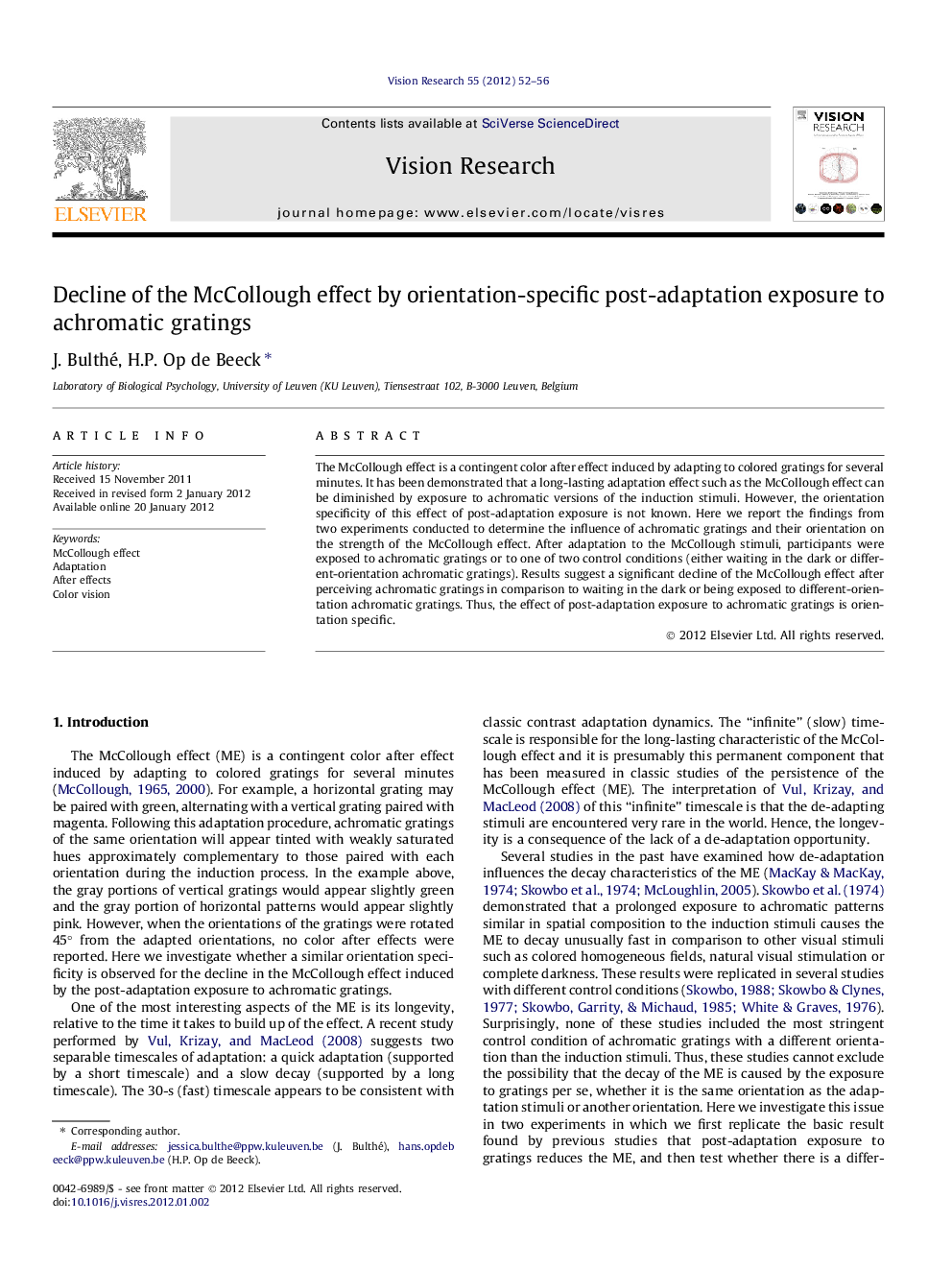| Article ID | Journal | Published Year | Pages | File Type |
|---|---|---|---|---|
| 4034066 | Vision Research | 2012 | 5 Pages |
The McCollough effect is a contingent color after effect induced by adapting to colored gratings for several minutes. It has been demonstrated that a long-lasting adaptation effect such as the McCollough effect can be diminished by exposure to achromatic versions of the induction stimuli. However, the orientation specificity of this effect of post-adaptation exposure is not known. Here we report the findings from two experiments conducted to determine the influence of achromatic gratings and their orientation on the strength of the McCollough effect. After adaptation to the McCollough stimuli, participants were exposed to achromatic gratings or to one of two control conditions (either waiting in the dark or different-orientation achromatic gratings). Results suggest a significant decline of the McCollough effect after perceiving achromatic gratings in comparison to waiting in the dark or being exposed to different-orientation achromatic gratings. Thus, the effect of post-adaptation exposure to achromatic gratings is orientation specific.
► We study decline characteristics of the McCollough effect. ► Orientation specificity of achromatic gratings determines rapid decay of the effect. ► Longer exposure to achromatic gratings has no influences on decay.
